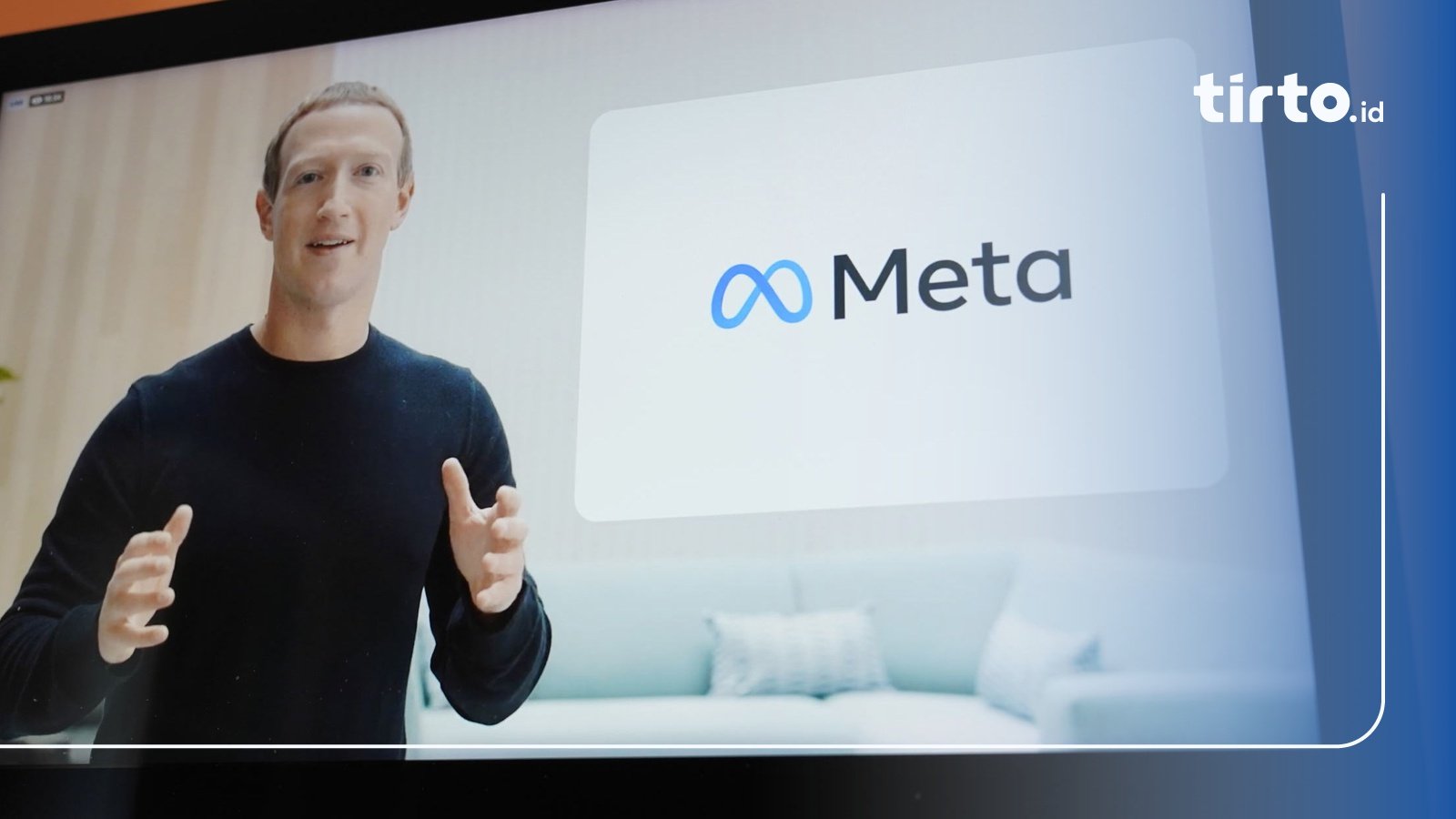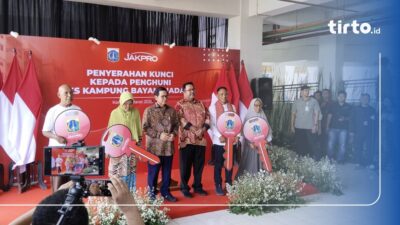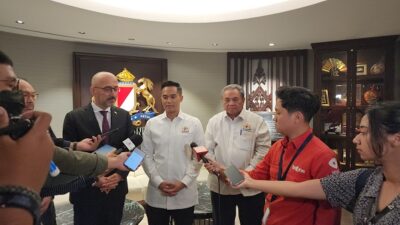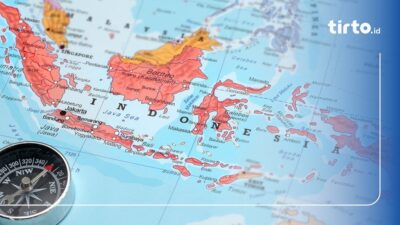
lembaranbaru.my.id – Meta announced its decision to end its partnership with third-party fact-checkers on Tuesday (7/1/2025). Meta plans to develop a community notes system similar to the feature in application X. The company’s policy will soon be implemented in the United States (US).
Meta CEO, Mark Zuckerberg, announced the corporate policy through a short video lasting about five minutes on Tuesday (7/1) morning, local time.
"After Trump was first elected in 2016, conventional media wrote endlessly about how misinformation posed a threat to democracy. We tried in good faith to address the issue by avoiding becoming the arbiters of truth. However, fact-checkers are too politically biased and have destroyed more trust than they have built, especially in the US. So, for the next few months, we will implement a more comprehensive community notes system," said Zuckerberg.
Along with the video, Meta’s Chief of Global Affairs, Joel Kaplan, also provided an explanation in a blog post. Kaplan highlighted how fact-checkers select content and their biased disclosure.
According to him, this has led to an excessive amount of content being fact-checked. As a result, the program is seen as a tool for censoring information to the public.
"We are now changing this approach. We will end the third-party fact-checking program, currently in the United States, and instead transition to the community notes program," explained Kaplan.
"We think this could be a better way to achieve our original goal of providing people with information about what they see—and not be too vulnerable to bias."
Zuckerberg and Kaplan also mentioned that they originally created a complex content moderation system. However, they found that it was turning into censorship.
"We want to roll back the mission creep that has made our rules too restrictive and too vulnerable to over-enforcement. We are removing a number of restrictions on topics like immigration, gender identity, and gender that are frequent subjects of discourse and political debate. It is not right if something can be discussed on TV or in Congress, but not on our platform," added Kaplan.
So, is the assumption by Meta’s top executives that fact-checkers tend to censor information accurate?
How Third-Party Fact-Checkers Work
Zuckerberg highlighted the issues of censorship and freedom of expression on social media, including Facebook, Instagram, and Threads under Meta. "Censor" and "freedom of expression" were the two dominant words in Zuckerberg’s message.
From the transcript of his message, these two words appeared at least five times and were among the most frequently uttered phrases in the monologue video. Content removal was mentioned as one of the means of censorship.
However, in practice, Meta tends to rarely remove content from its platform. If content is indeed removed, the decision comes from Meta, not from the fact-checking organization. This is stated in the report of the program they created.
Third-party fact-checkers in Meta’s program never have the authority to remove content from the platform. This provision is also stated in the description of the Third-Party Fact-Checking program created by Meta.
"Fact-checkers do not remove content, accounts, or pages from our app," explained Meta.
In a statement regarding Meta’s policy, the Poynter Institute (a non-profit journalism organization that houses the International Fact-Checking Network—IFCN) emphasized that fact-checking organizations offer independent reviews that outline official sources as references.
"Facts are not censorship. Fact-checkers do not censor anything. Meta always remains in control. It is time to stop using inciting and incorrect language to describe the roles of journalists and fact-checkers," said Poynter Institute President, Neil Brown.
In the program of collaboration with third-party fact-checkers, Meta highlighted several potential misinformation circulating on its platform. The determination is based on several variables, including how quickly the content spreads and how people respond to it, the device they call community feedback, and keyword detection during major events or trending topics.
Content with the potential to be misinformation is then gathered in one platform. Fact-checkers then review and use their organizations’ editorial standards to determine the validity of the content for fact-checking.
The next task of third-party fact-checkers is to produce reports on the results of their research using information from primary sources, interviews, public data, or analysis.
After third-party fact-checkers publish reports on potential misinformation on the platform, Meta will reduce the distribution of that content.
"Every time a fact-checker assesses content as false, we significantly reduce the distribution of that content so fewer people see it," Meta wrote on their official site.
This content will also receive its own warning label so that people are aware of the potential spread of false information being reshared.
"We inform people who previously shared or tried to share that content that the information is false and apply a warning label linking to the fact-check article that debunks the claim," Meta explained.
Meta also uses artificial intelligence (AI) to scale up fact-checking work by applying warning labels to duplicate false claims and reducing their distribution.
The fact-checking program is also open to criticism and accepts corrections. Content creators can appeal fact-checking decisions. If they meet the criteria, content creators can provide clarification and correct the content of their posts to remove the misinformation label.
The third-party fact-checking program has also received positive responses from users of Meta’s applications. In information published in June 2021, Meta stated that, "We know this program works and people find the warning screens we apply to content beneficial after fact-checking partners evaluate it. We surveyed people who had seen these warning screens on the platform and found that 74 percent of people were satisfied with the amount of content labeled or open to viewing more false information labels. There were also 63 percent of people who felt the warning screens were applied fairly."
The Image of Content Censorship for Fact-Checkers
According to a Poynter report, Meta’s decision to transition to a community notes system will directly impact Meta’s contracts with 10 fact-checking partners in the US. So far, only the US program has been affected after Zuckerberg’s announcement.
Based on information from their official site, Meta has fact-checking contracts with 119 organizations spread across various parts of the world. In Indonesia, Meta collaborates with Tirto, AFP, Kompas, Liputan 6, Mafindo, and Tempo. The Meta Asia Pacific team has confirmed that there have been no impacts on fact-checking partners outside the US.
Meanwhile, the IFCN regrets Meta’s decision to end the third-party fact-checking program.
Dampak Penghentian Program Pemeriksa Fakta Meta terhadap Pengguna Media Sosial
Dalam perkembangan terbaru, keputusan Meta untuk menghentikan program pemeriksa fakta telah menimbulkan dampak yang signifikan bagi pengguna media sosial. Keputusan ini tidak hanya mempengaruhi akses informasi akurat, tetapi juga berpotensi memengaruhi kehidupan sehari-hari dan interaksi dengan teman dan keluarga. Di tengah kontroversi ini, Direktur IFCN, Angie Holan, mempertanyakan konsekuensi dari langkah tersebut.
Kontroversi Terkait Penghentian Program Pemeriksa Fakta Meta
Menurut Angie Holan, jurnalisme pemeriksa fakta memiliki peran penting dalam menambahkan konteks dan informasi terhadap klaim kontroversial serta menyanggah konten hoaks dan teori konspirasi. Namun, keputusan Meta untuk menghentikan program pemeriksa fakta telah menimbulkan kekhawatiran di kalangan lembaga pemeriksa fakta.
Pertemuan Darurat IFCN dan Reaksi dari Anggotanya
IFCN merespons pengumuman Meta dengan mengadakan pertemuan darurat yang melibatkan para anggotanya. Dalam pertemuan tersebut, terungkap bahwa tidak semua lembaga pemeriksa fakta anggota IFCN adalah mitra pemeriksa fakta Meta. Meskipun demikian, hampir semua lembaga tersebut memiliki kepentingan terhadap program pemeriksaan fakta tersebut.
Tantangan bagi Lembaga Pemeriksa Fakta
Wawancara eksklusif dengan Angie Holan juga mengungkapkan nuansa muram dan frustrasi yang melingkupi lembaga-lembaga pemeriksa fakta. Para pemeriksa fakta merasa kecewa karena melihat diri mereka sebagai mitra Meta dalam menjaga akurasi dan keandalan platform media sosial.
Dampak Finansial dan Ketergantungan pada Pendanaan Meta
Angie Holan juga menyoroti dampak finansial bagi lembaga pemeriksa fakta yang bergantung pada pendanaan dari Meta. Meskipun pemeriksaan fakta tetap akan ada, beberapa inisiatif pemeriksa fakta rentan terhadap penghentian program Meta.
Reaksi Internasional terhadap Kebijakan Meta
Sejumlah lembaga pemeriksa fakta internasional mengeluarkan pernyataan resmi terkait kebijakan Meta. European Fact-Checking Standards Network (EFCSN) dan PolitiFact, salah satu rekan pemeriksa fakta dari AS, menegaskan bahwa pemeriksaan fakta bukanlah upaya sensor.
Tantangan dan Harapan ke Depan
Dalam menghadapi penghentian program pemeriksa fakta Meta, lembaga pemeriksa fakta seperti Congo Check menyarankan Meta untuk kembali mempertimbangkan keputusannya. Mereka berharap agar Meta dapat berdiskusi dengan mitra pemeriksa fakta untuk menemukan alternatif terbaik.
Kesimpulan
Dengan adanya penghentian program pemeriksa fakta Meta, tantangan baru muncul bagi lembaga pemeriksa fakta dan pengguna media sosial. Penting bagi semua pihak terkait untuk bekerja sama dalam menjaga akurasi informasi dan mencegah penyebaran konten yang menyesatkan. Semoga langkah-langkah yang diambil ke depan dapat membawa dampak positif bagi ekosistem media sosial secara keseluruhan. Please rewrite this sentence for me.












